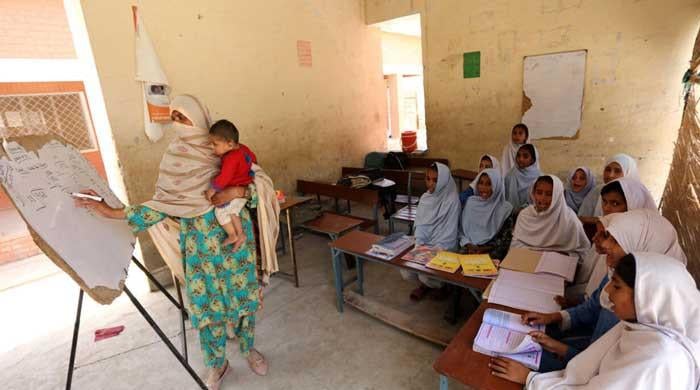Millions in Pakistan Face Hardship Due to Lack of Identification
Ahmed Raza remains marginalized, unable to pursue education or employment because he, like numerous other Pakistanis, lacks essential identification documents.
In Pakistan, a country of over 240 million residents, it is customary for parents to wait until their children are five years old and ready to start school before obtaining a birth certificate, which is generally needed for enrollment.
Raza’s situation became problematic at the end of elementary school. When his middle school asked for documentation, his mother was compelled to withdraw him.
“When I seek employment, employers demand my ID card. Without it, they won’t hire me,” stated the 19-year-old from Karachi, the major southern economic hub.
He has been detained twice for not having identification when stopped by law enforcement at checkpoints.
Raza’s mother, Maryam Suleman, who is also unregistered, expressed that she “didn’t realize how important it was to have identity documents.”
“I wasn’t aware I would encounter such challenges later in life due to not being registered,” the 55-year-old widow disclosed.
Pakistan introduced biometric ID cards in 2000, and registration is increasingly essential in all aspects of formal life, particularly in urban areas.
In 2021, the National Database and Registration Authority estimated that about 45 million individuals were unregistered. Despite multiple requests, they have not provided updated figures.
To register, Raza requires his mother’s or uncle’s documents, which is an expensive and complicated process, often necessitating a doctor, lawyer, or a newspaper notice.
He mentions that the paperwork could cost up to $165, equivalent to one and a half months’ earnings for both of them from housework and odd jobs at a local store.
There are claims that registration often involves bribes, and some suggest resorting to the black market as a last option.
“Our lives could have been much better if we had our identity cards,” Raza lamented.
In remote areas of Punjab, Unicef is striving to prevent others from suffering the same fate as Raza through door-to-door registration campaigns, alerting parents that undocumented children are more susceptible to child labor and forced marriages.
According to government data, 58% of children under five do not have birth certificates.
Registration fees vary by province, ranging from free to $7, a significant expense for many Pakistanis, with approximately 45% living in poverty.
“Our men lack the time or funds to visit the council, causing them to miss a day’s work,” explained Nazia Hussain, a mother of two unregistered children.
She added that the “slow process” frequently needs multiple visits, and “there is no transportation available for a single woman.”
Saba, from the same village, is resolved to register her three children, starting by persuading her in-laws of its significance.
“We don’t want our children’s future to mirror our past. If children attend school, their future will be brighter,” stated Saba.
Unicef reports that initiatives in the village have led to an increase in birth registration rates from 6.1% in 2018 to 17.7% in 2024.
Zahida Manzoor, a child protection officer at Unicef, believes this will improve the prospects of an entire generation.
“If the state is unaware of a child’s existence, it cannot deliver essential services,” she noted.
“If a child lacks an identity, it signifies that the state has not acknowledged their existence and is not preparing for the services that the child will require after birth.”
Muhammad Haris and his brothers, who have minimal contact with the formal state in their remote border village in Khyber Pakhtunkhwa, have not registered any of their eight children.
He stated, “The government requires documents for the pilgrimage visa to Makkah,” a journey usually undertaken after saving for a lifetime.
For him, this is the only reason worth registering.



Comments (0)
No comments yet. Be the first to comment!
Leave a Comment